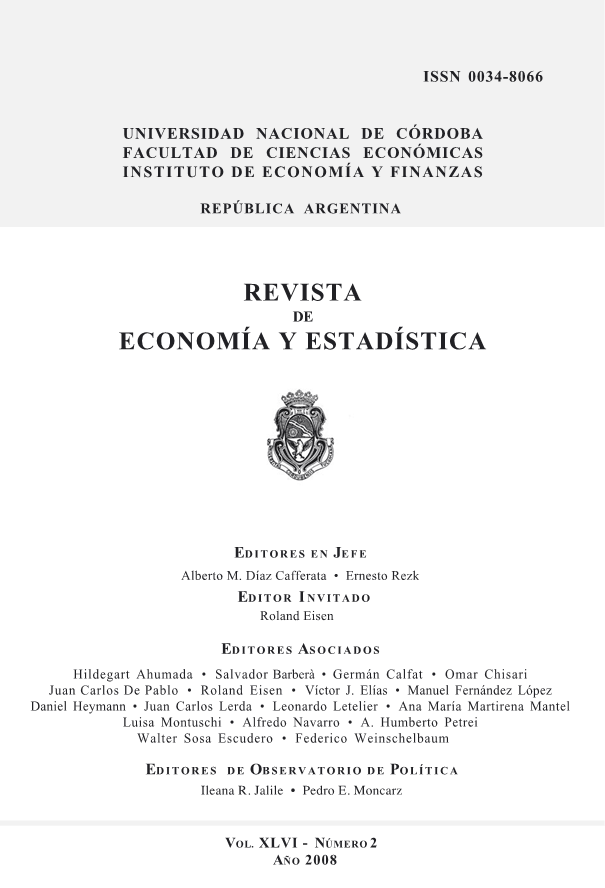On Growth and Income Distribution in a Globalizing World
DOI:
https://doi.org/10.55444/2451.7321.2008.v46.n2.3851Palabras clave:
economic growth, income distribution, globalizationResumen
The basic idea explaining the relationship between economic growth and income distribution is the “U- shaped hypothesis” postulated by Simon Kuznets. This can be shown in a dual-economy model with technical progress. Initially, inequality is low, but as labour participation in the modern sector increases, higher wages in this sector tend to increase inequality. However, if enough labour is incorporated in the modern sector, wage inequality begins to diminish. Income inequality continues to worsen between the two sectors, if a new modern economy (e.g. IT-based technical change) is introduced and potential GDP shifts to a new trajectory before the turning point is reached. In a globalised word, the substantial unskilled-labour-saving technical progress puts pressure on wages of unskilled workers (in industrialized countries). Also, globalization may be blamed for leaving many nations and millions of people out from reaping the benefits of globalization. This problem can only be overcome by appropriate reforms of the international economic system.
Descargas
Descargas
Publicado
Número
Sección
Licencia
Derechos de autor 2008 Roland Eisen

Esta obra está bajo una licencia internacional Creative Commons Atribución-NoComercial-SinDerivadas 4.0.
Aquellos autores/as que tengan publicaciones con esta revista, aceptan los términos siguientes:
Los autores/as conservarán sus derechos de autor y garantizarán a la revista el derecho de primera publicación de su obra, el cuál estará simultáneamente sujeto a la Licencia Creative Commons Atribución-NoComercial-SinDerivar 4.0 Internacional que permite a terceros compartir la obra siempre que se indique su autor y su primera publicación esta revista.
Los autores/as podrán adoptar otros acuerdos de licencia no exclusiva de distribución de la versión de la obra publicada (p. ej.: depositarla en un archivo telemático institucional o publicarla en un volumen monográfico) siempre que se indique la publicación inicial en esta revista.
Se permite y recomienda a los autores/as difundir su obra a través de Internet (p. ej.: en archivos telemáticos institucionales o en su página web) antes y durante el proceso de envío, lo cual puede producir intercambios interesantes y aumentar las citas de la obra publicada. (Véase El efecto del acceso abierto)














